News
‘Misinformation undermines trust in health systems, endangers lives’
An International Visitor Leadership Programme (IVLP) impact award recipient in partnership with Christian Health Association of Ghana (CHAG), Mr Kelvin Odonkor, has identified health misinformation as one of the biggest health threats facing the country.
He noted that health misinformation had undermined trust in health systems and endangered many lives.
He said this at a training workshop in Accra to equip community health workers and health trainees with essential tools to combat false health narratives in their communities.
The workshop empowered health workers and young professionals with the awareness and tools needed to combat falsehoods in their communities.”
The event spearheaded by Mr Odonkor was in partnership with CHAG, Korle Bu Teaching Hospital, Public Health Nursing School, Korle Bu, FactCheck Ghana, DUBAWA and funded by the U.S. Department of State’s Bureau of Educational and Cultural Affairs, with Meridian International Centre as the implementing partner.
The workshop was also aimed at enhancing participant’s ability to identify and verify misleading health information. Attendees included frontline community health workers, representatives from non-governmental organisation and health trainees.
Topics treated included understanding the distinction between misinformation (unintentional falsehoods) and disinformation (deliberate falsehoods), practical exercises in utilising fact-checking tools and techniques for verifying health-related information, and strategies for engaging with communities to correct misinformation and ensure accurate health communication.
According to Mr Odonkor, health misinformation poses a significant challenges particularly in underserved areas, leading to issues like vaccine hesitancy and the spread of harmful practices at home that could have otherwise been avoided with accurate information.
He further mentioned that during the COVID-19 pandemic, Ghana experienced a surge in health-related misinformation, which contributed to widespread confusion about the virus and vaccines.
At the end of the training works, participants were able to use fact-checking tools effectively to debunk health myths as well as formed a network of health misinformation fact-checkers and ambassadors committed to promoting accurate health information in Ghana.
Sharing their thoughts after the event, a public health nurse, Rabbi Braimah, said, “This workshop has enabled us to understand the difference between misinformation and disinformation. It has equipped me with the tools to ensure that the information I share or use is accurate.”
She also expressed her satisfaction for the programme, recommending that, “the training should nsot be limited to only the targeted audience but should be extended to religious groups and community leaders.
By Abigail Annoh
News
Oguaa goes gay with Fetu Afahye
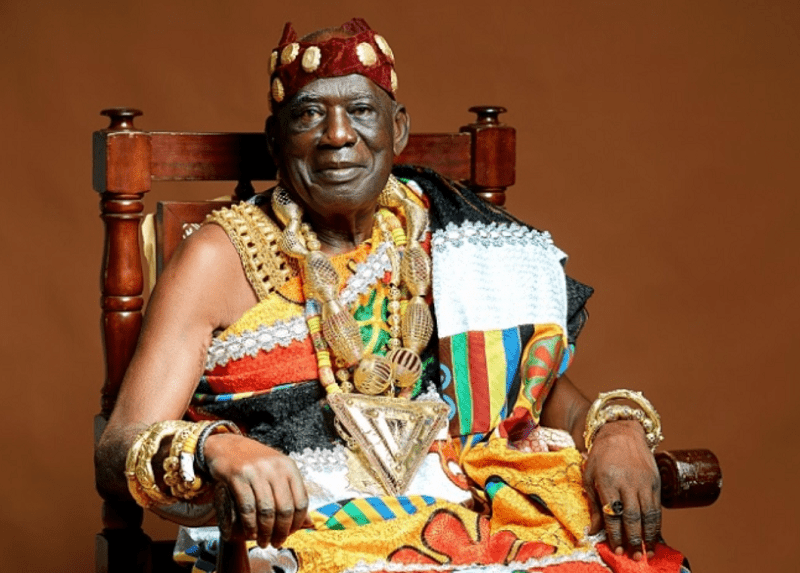
The ancient city of Cape Coast, one of Ghana’s historical cities, witnessed a showcase of the rich cultural heritage of the Oguaa people with an exciting, colourful, and traditional event to mark the celebration of the 61st annual Fetu Afahye.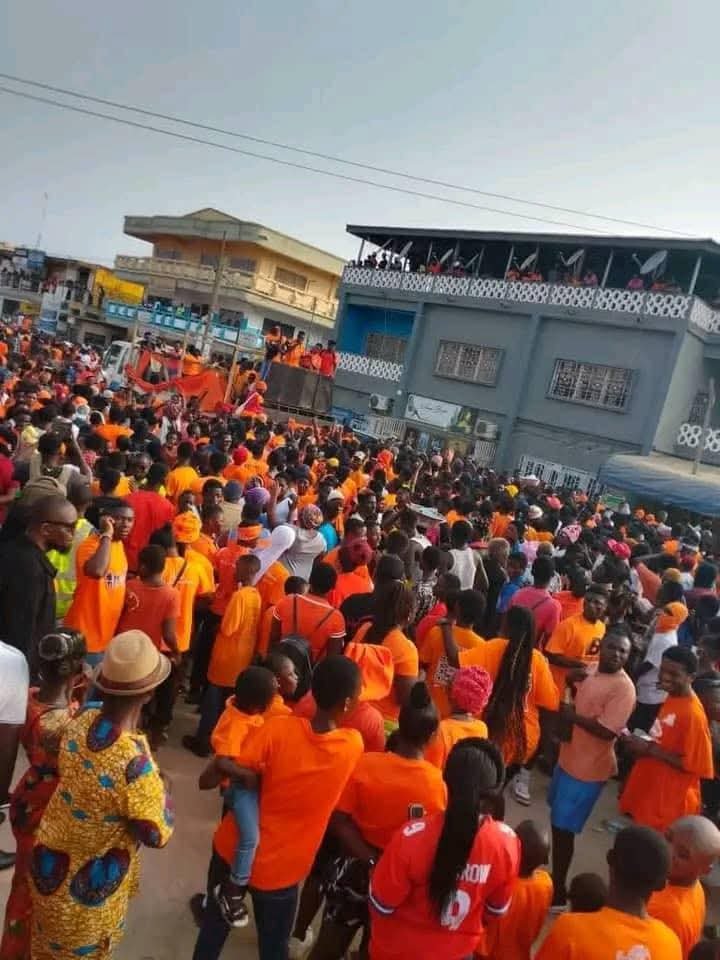
Themed “Innovate to elevate: Harnessing the creative economy for sustainable growth”, the festival featured a vibrant lineup of events, interspersed with several cultural performances showcasing the traditions which depict the traditional, historical and ancestral heritage of the land.
It witnessed a colourful procession of chiefs and various Asafo companies from the Mfantsipim School junction through the principal streets of the town to the Jubilee Park, accompanied by drumming and traditional dances.
The chiefs and members of the asafo companies were adorned in regal attire symbolising the pride and unity of the community.
Fetu Afahye demonstrates Oguaa’s resilience, unity, and cultural pride as the town welcomed indigenes both within and outside, as well as people from far and near, desirous of participating in the festival.
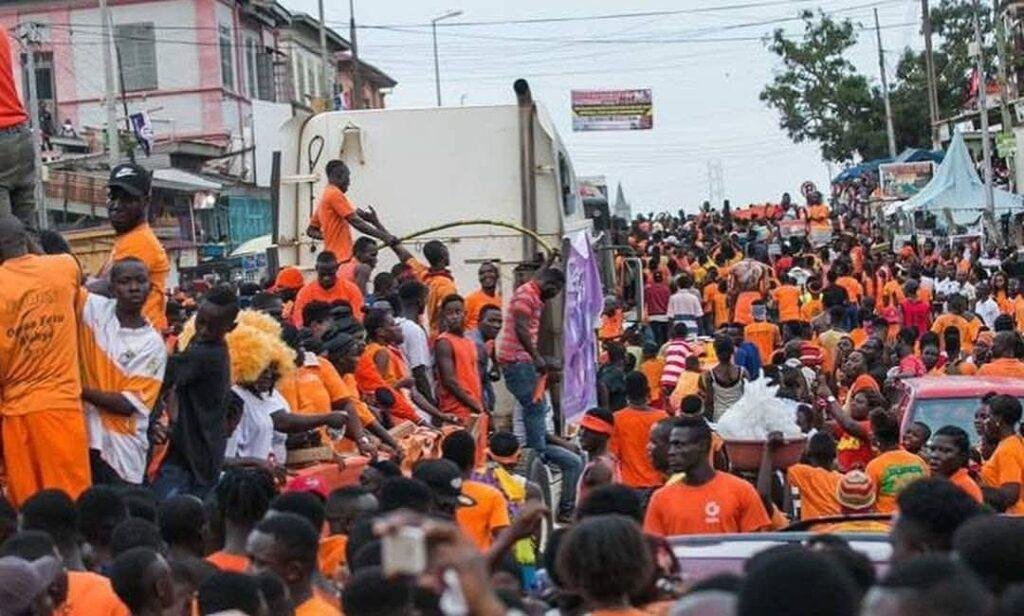
Various public spaces, including eateries and pubs, attracted patrons, and streets within the town witnessed bustling events with music blaring from the loudspeakers that had been placed by the roadside.
Bakatue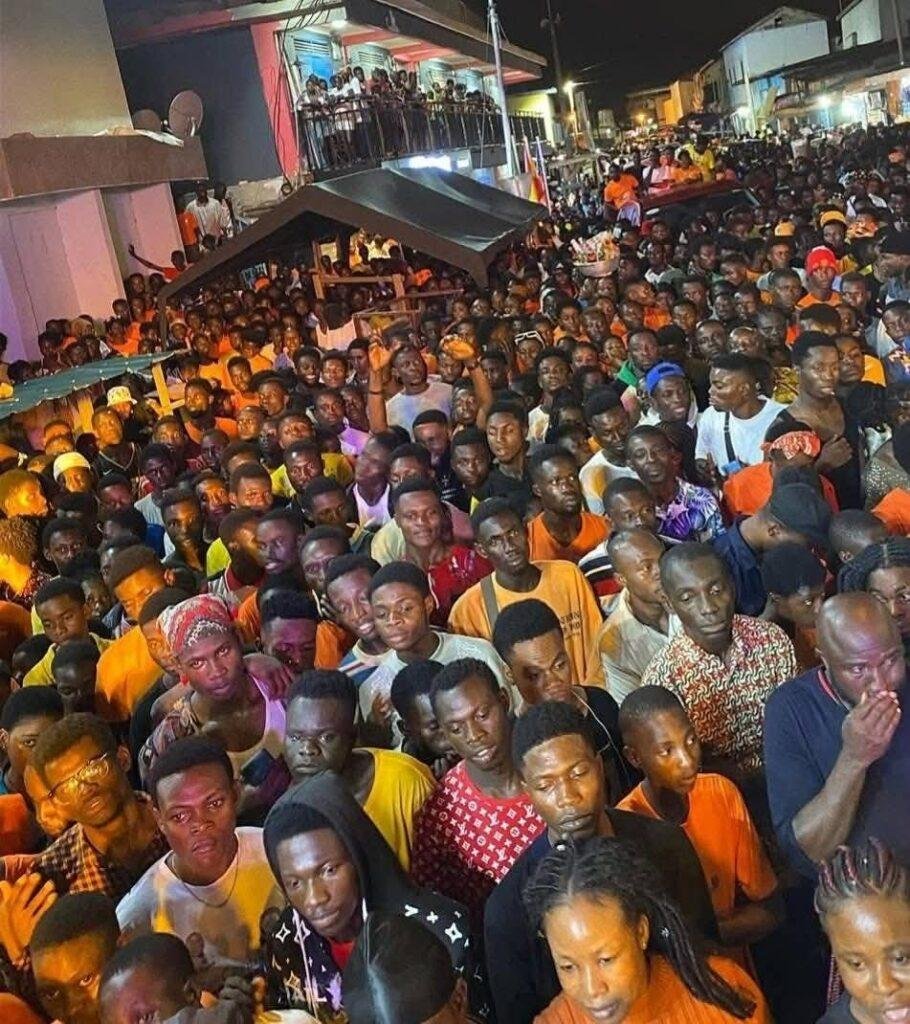
Prior to the durbar was the Bakatue regatta, a canoe race on the Fosu Lagoon, organised by ATL, a campus-based radio station located within the University of Cape Coast (UCC) in collaboration with the Oguaa Traditional Council.
The event saw a thrilling spectacle as the three Asafo companies, Nkum No. 4, Bentsir No. 1, and Anaafo No. 2, battled aggressively on the Fosu Lagoon. Nkum No. 4 earned nine points to clinch the trophy, medals, and a cash prize. They were followed by Anaafo No. 2 with five points, while Bentsir No. 1 finished third with four points.
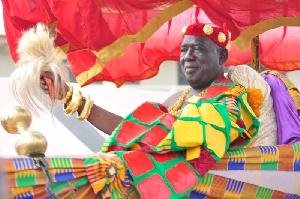
Orange Friday
Friday witnessed what has come to be known as the biggest street carnival in Ghana, known as ‘Orange Friday.’
It drew hundreds of people across the country. Clad in orange attires, the patrons gathered and moved through the streets of the town, creating a gridlock.
The Paramount Chief of the Oguaa Traditional Area, Osaberimba Kwesi Atta II, at the durbar of chiefs to climax the festival acknowledged the unifying factor in relation to culture among Africans and stated the need for Africans to take their destinies into their own hands.
He explained that festivals such as Fetu Afahye offer an opportunity for Africans to remind themselves of the future by working hard and embrace the future in order not to be taken by events.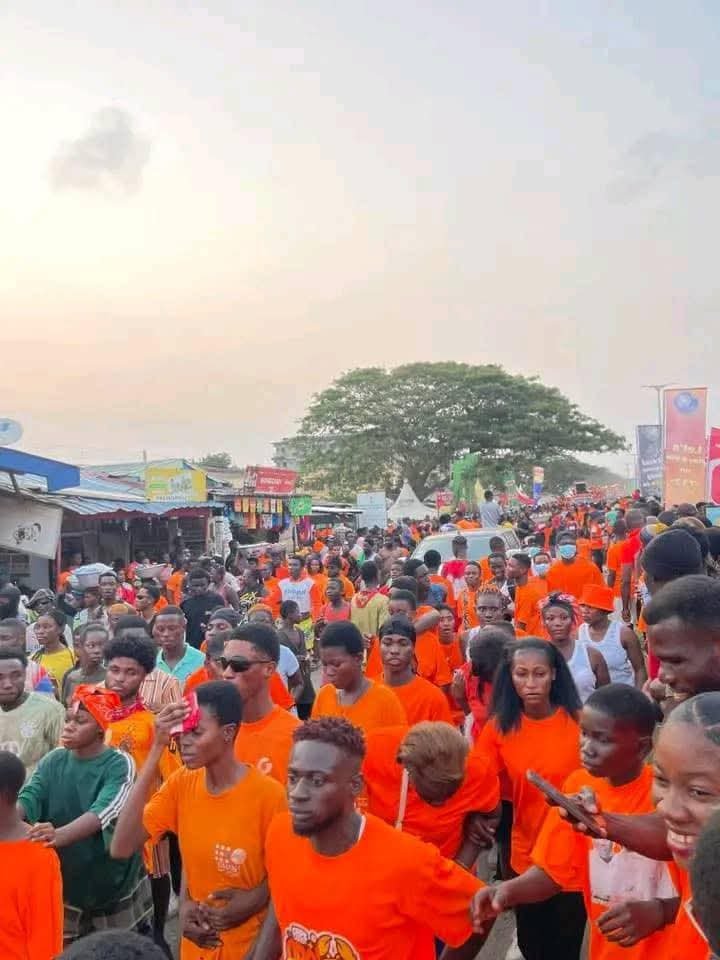
The Vice President, Prof. Naana Jane Opoku-Agyemang, in a speech read on her behalf, noted that the festival was far more than a ritual or an annual duty, saying, “It is an affirmation of an identity, a homecoming and a powerful testimony to the wisdom and fortitude of our forebears”.
In his remarks, the Special Guest of Honour, the Olu of Warri State in Nigeria, Ogiame Atuwatse III, indicated that, the only thing holding Africans back was Africans themselves, which he said, was in the area of an African identity, and acting on that identity.
From David O. Yarboi-Tetteh, Cape Coast
Join our WhatsApp Channel now!
https://whatsapp.com/channel/0029VbBElzjInlqHhl1aTU27
News
Chief Imam issues disclaimer on unauthorised petitions
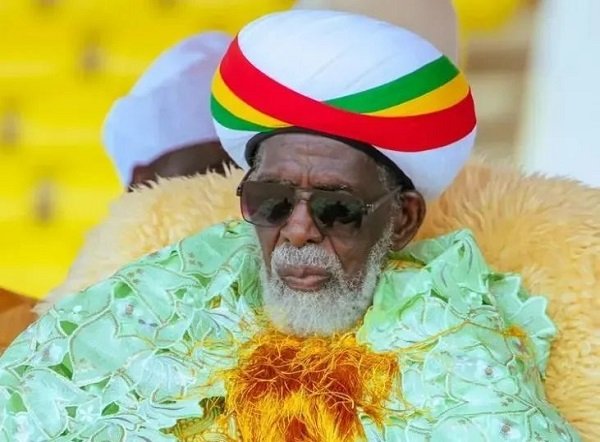
The Office of the National Chief Imam has warned Muslim organizations and individuals against issuing statements and petitions to the Government in his name without permission.
In a statement, the Chief Imam said he had observed that some groups had been circulating petitions, including a recent one on Hajj, using his name without authorization.
He stressed that such actions were unlawful and cautioned those involved to stop or face the law.
The Chief Imam reminded the public that on October 4, 2022, he, together with the National Imams of all Muslim sects, signed a deed and presented it to the Government at the Jubilee House.
The agreement recognised the National Muslim Conference of Ghana as the official body representing Muslims in their dealings with state institutions.
He urged that any petitions meant to be sent to the Government in his name should go through the National Muslim Conference of Ghana with the approval of the Advisory Board of his office.
By: Jacob Aggrey






